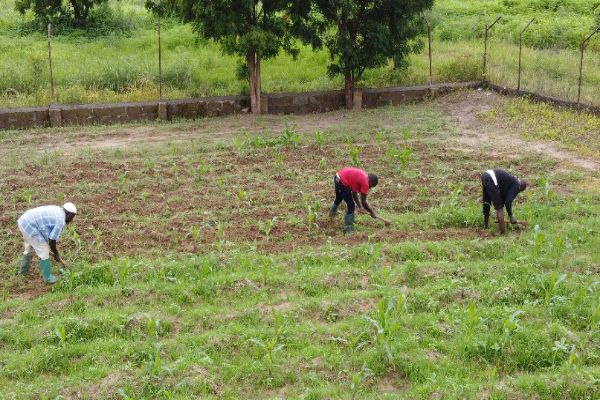Farmers in Borno, Adamawa, and Yobe states have identified insecurity and the sharp drop in food prices as major challenges threatening their livelihoods.
In a survey conducted by reporters, the farmers lamented that prices of food items had fallen by nearly 50 per cent, while insurgent attacks and farmer-herder conflicts continued to affect agricultural productivity across the region.
Mr. Williams Zamdai, a farmer in Yola North, Adamawa State, who cultivates rice, maize, beans, and guinea corn, said he was reluctant to take his produce to the market due to fear of losses.
“Last season, we sold a bag of maize for between ₦60,000 and ₦70,000, but now it has dropped to ₦35,000,” he said. “Meanwhile, the cost of inputs such as fertiliser and tractor services has gone up. Hiring a tractor for a single trip now costs about ₦50,000.”
Another farmer in Madagali, Adamawa, Mr. Jonathan Babangida, said the price of a bag of new maize had further crashed from ₦35,000 to ₦20,000, even before the peak of the harvest season.
Similarly, Chairman of the All Farmers Association of Nigeria (AFAN) in Borno State, Alamin Umara, said a bag of maize that sold for ₦60,000 in June now sells for ₦35,000.
“The price of beans has dropped by almost 40 per cent. Farmers are worried that they may not recover their production costs,” Umara said.
In Yobe State, a farmer in Nguru, Garba Bilal, said the price of paddy rice had fallen from ₦60,000 in 2024 to ₦30,000, while a bag of white beans that sold for ₦100,000 last year now goes for ₦50,000.
An agriculturist in Adamawa, Dr. Obadiah Noah, attributed the price crash to the large importation of grains, which he said had flooded local markets with commodities.
“The policy was designed to bring down the high cost of food recorded in 2024, but it has brought untold hardship to farmers who need profit to stay in business,” Noah said.
He added that the market was largely unregulated, with little government intervention to stabilise prices. Noah, a retired director in the Federal Ministry of Agriculture, said that without access to improved storage facilities and guaranteed off-take arrangements, prices could continue to fall.
Another agriculturist in Gashua, Yobe State, Mr. Mohammed Maitela, said the glut was worsened by massive hoarding of grains in 2024.
“Many merchants hoarded grains, expecting higher prices in 2025. Unfortunately, that did not happen due to the government’s import policy, which forced them to release their stockpiles, flooding the market,” he explained.
In Borno, Umara also linked the price crash to the influx of newly harvested produce and the suspension of large-scale grain exports by some state governors.
“The ban on bulk exports to neighbouring countries, though aimed at ensuring food sufficiency, has reduced external demand and led to a glut in local markets,” he said.
On insecurity, a farmer in Zabarmari, Borno State, Mr. Bello Muhammad, said insurgent attacks during harvest and transportation of produce had increased.
“Some of our members were recently robbed of their harvests along the Zabarmari–Dusuman Road near Maiduguri,” he said.
In Adamawa, Zamdai added that frequent clashes between farmers and herders in Yola North often led to the destruction of farmlands. He urged the state government to buy off farm produce at competitive prices and establish grain reserves for storage.
Babangida, the maize farmer from Madagali, said farmers now struggled with high storage and labour costs.
“Before now, selling two or three bags of produce could cover storage costs. Now, I have to sell up to 10 bags to pay for it. Labour costs have also doubled,” he said.


